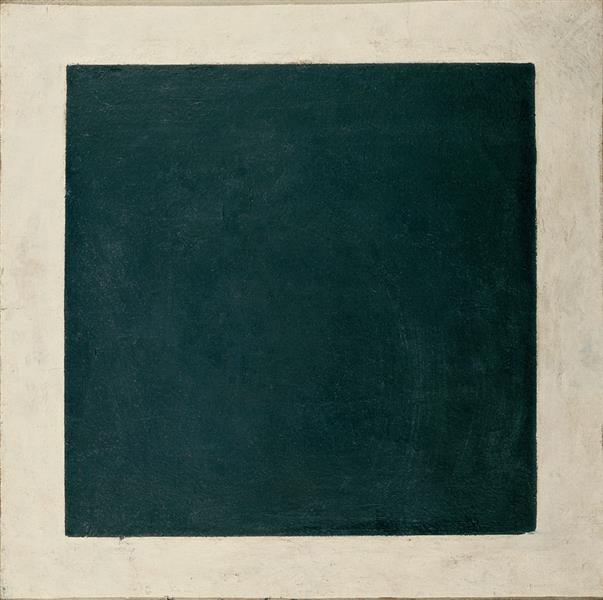Description
The paint "Black Square (Fourth version)" of 1932, the top work of the Russian artist Kazimir Malevich, represents a crucial crossroads in the evolution of modern art. When observing this fourth iteration of his famous "Black Square", one cannot avoid reflecting on the radical and challenging simplicity that characterized the Supreme Movement, which Malevich founded. This work is not simply a painting; It is a philosophical and aesthetic statement.
The "black square" composition is austere and forceful: a black square on a white background. This chromatic duality, stripped of any ornament or recognizable figure, condenses Malevich's supreme aspiration to transcend objectivity and achieve absolute artistic purity. Black, in its total absence of light and color, appears as an abyss in the middle of the canvas, a window towards the infinite that isolates the viewer of every earthly context. The white background, on the other hand, is perceived as an unlimited space that hosts and, paradoxically, highlights the intensity of the black square.
Despite its apparent simplicity, the work encourages deep meditation on its implications. Malevich did not capture details, figures or narratives within his "black square." The canvas is empty of characters and environments, which leads the observer to confront pure abstraction. This act of dispossession is intellectual and emotionally provocative: we are invited to dispense with known forms and references to give ourselves to a primary perceptual experience.
Historically, "Black Square" had a subversive role within the artistic panorama of the post -revolutionary Russia. When presenting its first version in 1915 during the 0.10 exhibition in St. Petersburg, Malevich broke with the realistic and academic pictorial traditions, instead proposing an aesthetic that sought the essence of art in non-representation. This fourth version, made in 1932, takes up and reaffirms that vision, although under the growing state control of the Soviet Union, adding a layer of political resonances to the act of reaffirmation of Malevich.
The suprematist style, which Malevich led, was revolutionary not only for its rejection of the mimetic representation of the world, but for its exploration of space and color as autonomous elements of artistic language. Other similar works of the artist, such as "Black Circle" or "Cruz Negra", continue this line of thought, proposing basic geometric shapes as a thread of a new artistic reality.
In short, "black square (fourth version)" is more than a painting; It is a visual manifesto that invites a radical redefinition of what art can be. Malevich's work, with his bold minimalism and his deep symbolism, remains a powerful source of inspiration and reflection, urging us to consider that the true essence of art does not reside in what it represents, but in what it suggests and evokes.
KUADROS ©, a famous paint on your wall.
Hand-made oil painting reproductions, with the quality of professional artists and the distinctive seal of KUADROS ©.
Art reproduction service with satisfaction guarantee. If you are not completely satisfied with the replica of your painting, we refund your money 100%.

